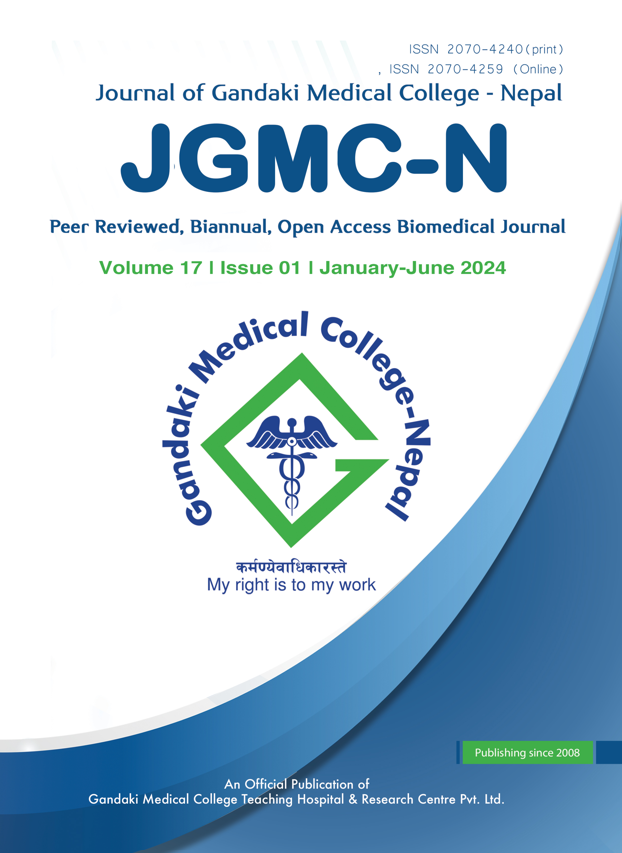Stress and its coping strategies among undergraduate health science students of Pokhara during COVID-19 pandemic
DOI:
https://doi.org/10.3126/jgmc-n.v17i2.71025Keywords:
Coping strategies, COVID-19, stress, undergraduate studentsAbstract
Introduction: Mental health of students was affected during COVID-19 pandemic due to fear of infection, mandatory lockdown, interruption in academic activities, challenges in distance learning, and social isolation. This study aimed to assess the level of stress and coping strategies adopted by the undergraduate health science students of Pokhara during the COVID-19 pandemic.
Methods: A cross-sectional study design was used to assess the level of stress and coping strategies among undergraduate students from May 2021 to November 2021. A structured questionnaire was developed in Google form and a link to the questionnaire was sent to the study participants using email and social media. Descriptive and bivariate analysis was done using SPSS software.
Results: In total, 18.4% of the respondents had a high level of stress and 59.4% had an average level of stress. The most frequently used coping strategy was accepting reality and learning to live with it i.e. acceptance (36.8%). Following this, doing something to think less about the situation, such as watching movies/TV, reading, sleeping /playing online games/ attending online courses during COVID-19, i.e. self-distraction (31.6%) was another common strategy. Patterns of assignments, postponed exams, changes in exam patterns, and delayed academic year were found to be significantly associated with stress among the study population.
Conclusions: The majority of the respondents had an average to high level of stress during the COVID-19 Pandemic. A substantial portion adopted acceptance and self-distraction as strategies to cope with stress. The students should be taught different effective coping strategies to manage stress. There is a need for a clear academic plan, teaching-learning activity guidelines, and exam modalities for such emergency situations.
Downloads
Downloads
Published
How to Cite
Issue
Section
License
Copyright (c) 2024 The Author(s)

This work is licensed under a Creative Commons Attribution-NonCommercial 4.0 International License.
This license allows reusers to distribute, remix, adapt, and build upon the material in any medium or format for noncommercial purposes only, and only so long as attribution is given to the creator.

